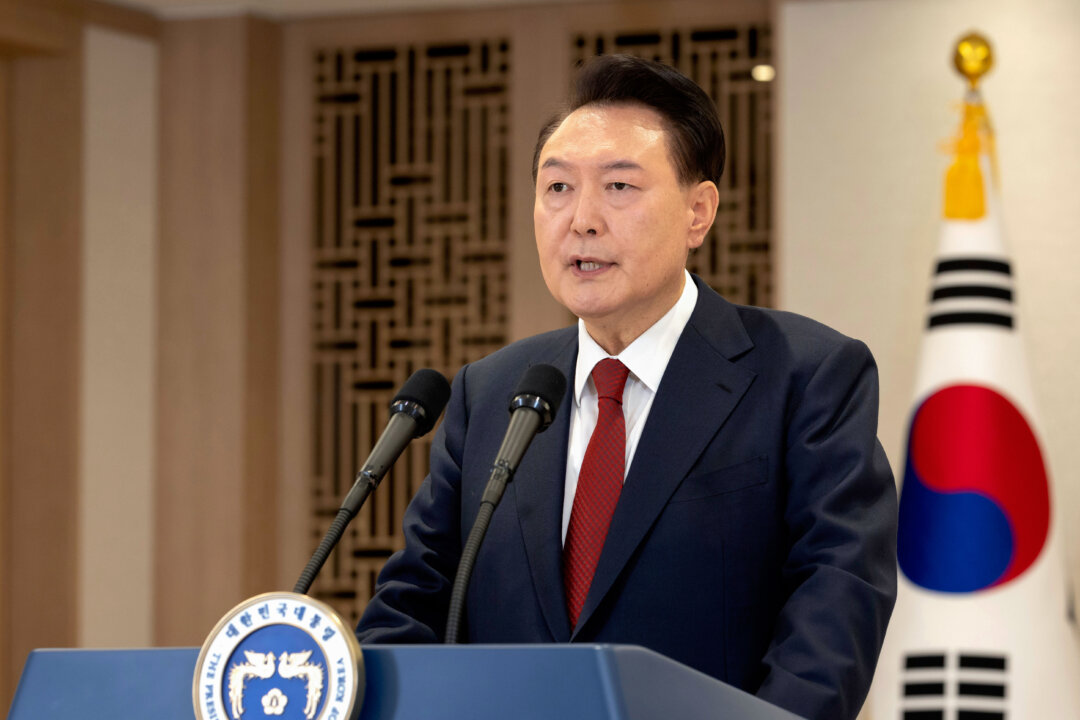President Yoon Suk Yeol’s lawyer argued that the warrant request was ‘invalid’ and that an ‘incumbent president cannot be prosecuted for abuse of power.’
South Korean investigators have sought an arrest warrant for suspended President Yoon Suk Yeol over his imposition of martial law earlier this month.
In December, martial law was briefly declared in South Korea by the leader of the People Power Party (PPP) to allegedly root out North Korean subversion in the country.
Authorities are now investigating if the martial law declaration amounted to insurrection. Yoon was impeached on Dec. 14 and has failed to respond to a summons for questioning.
The Corruption Investigation Office for High-Ranking Officials, which is leading a joint investigation with police and military authorities, confirmed it requested the warrant from the Seoul Western District Court.
A Constitutional Court trial has also commenced into whether to reinstate Yoon or remove him permanently from office. It has 180 days to reach a decision.
Insurrection is one of the few charges for which a South Korean president does not have immunity.
Yoon Kab-keun, the president’s lawyer, filed a challenge with the same court, arguing that the warrant request was invalid.
“An incumbent president cannot be prosecuted for abuse of power,” Kab-keun said. “Of course, there are differing academic opinions on whether a president can be investigated for abuse of power and some assert that investigations are possible. But even when investigations are allowed, the prevailing opinion is that they should be exercised with the utmost restraint.”
Han Min-soo, spokesperson of the liberal opposition Democratic Party, called for the court to issue the warrant, saying Yoon’s detainment would be the first step toward “ending the rebellion and restoring normalcy.”
On Friday, the court held its first preparatory hearing where a request by Yoon’s lawyers for a postponement in proceedings to better prepare was denied. The next hearing is due on Jan. 3.Yoon declared martial law on Dec. 3, citing the need to protect the country from anti-state forces and accusing the opposition Democratic Party of sympathizing with the communist regime in North Korea.
Protesters clashed with troops outside the National Assembly building in Seoul. All 190 lawmakers present voted to lift the order.
Yoon lifted the order following the vote. Martial law lasted roughly six hours.
Yoon apologized for declaring martial law but has not stepped down from his post. Yoon’s main constitutional powers were transferred to Acting President Prime Minister Han Duck-soo, the Yoon-picked prime minister.
South Korea’s parliament impeached Duck-soo on Dec. 27. The deputy primer minister and finance minister, Choi Sang-mok, is now acting president.
The Ministry of Justice has also banned Yoon and eight others from leaving the country.
Since taking office in 2022 for a single five-year term, Yoon, a conservative, has been on a collision course with his liberal rivals who control the country’s parliament.
Liberal lawmakers have brought motions to impeach his top officials.
Yoon said the country’s parliament was a “den of criminals” bogging down state affairs when he declared martial law. He said he would eliminate “shameless North Korea followers and anti-state forces.”
Jacob Burg, Guy Birchill, Reuters, and The Associated Press contributed to this report.

